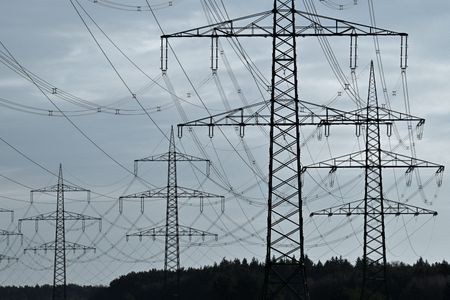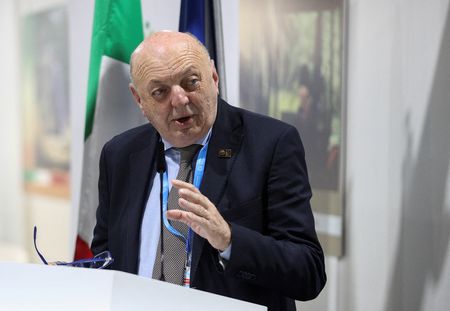BERLIN (Reuters) -Germany’s transmission system operators announced preliminary electricity grid fees for 2026, projecting a 57% reduction, contingent on government subsidies.
The reduction offers relief for consumers and industrial customers suffering from electricity costs that are among the highest in Europe.
The fees are set to drop from 6.65 cents per kilowatt hour (kWh) to 2.86 cents/kWh, enabled by a 6.5 billion euro ($7.6 billion) subsidy from the country’s national climate fund, grid operators 50Hertz, Amprion, TenneT and TransnetBW said in a joint statement on Wednesday.
The reduction depends on parliamentary approval of legislation by December 5, they added.
Germany’s electricity prices are inflated by transmission fees, levies and taxes, posing an extra burden on energy-intensive industries and the wider economy.
On average, private consumers currently pay about 40 cents per kWh, says energy industry association BDEW, up 20% from levels before the energy crisis triggered by Russia’s full-scale invasion of Ukraine.
In addition to the planned cut to transmission fees, Chancellor Friedrich Merz’s coalition government is planning to lower the electricity tax to the European minimum for the industrial and agricultural sectors among others.
($1 = 0.8509 euros)
(Reporting by Thomas Seythal)










